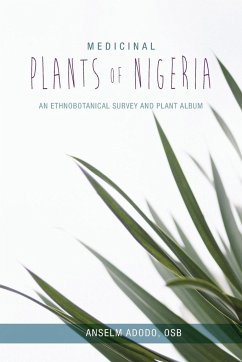ABOUT THE BOOK Since the publication of Nature Power in the year 2000, there has always been a demand for a subsequent book of this kind, to help readers identify the medicinal plants pictorially. This book aims to serve as a workbook for students, teachers, and practitioners in the field of ethnobotany and ethnomedicine. It documents the plants that are traditionally used by the local population, the history of local use, and the traditional beliefs around the use in Nigeria. At a time when so much attention is being given to phytochemical screening of plants, there is a temptation to overlook the philosophy of ethnomedicine and cultural use of plants, thereby losing the link between plants and the community. This plant album will help herbal medicine practitioners to identify the local plants available in Nigeria, and also give them some basic knowledge of the chemical constituents. It is a welcome addition to the existing body of literature on Nigeria's plants and flora. The chapter on Nigerian grasses, which is a much-neglected area of research, contributes to the book's uniqueness. ABOUT THE AUTHOR Anselm Adodo is a member of the Benedictine order of the Catholic Church. He was ordained a priest in 1997. Father Anselm Adodo is foremost herbal research Institute, the Pax Herbal Clinic and Research Laboratories, popularly called Paxherbals, and Ofure (Pax) Centre for Integral Research and Development (OFIRDI). He has over twenty years' experience of research in the fields of Ethnography, Ethnobotany, Epidemiology, Phytomedicine and Medical Sociology. He is a prominent advocate of African herbal medicine research, indigenous knowledge systems, rural community development, health policy reform and transformation of education in Africa. He has authored a number of books which include: Herbs for Healing (1997), Healing Radiance of the Soul (2003), New (2005), Herbal Medicine and the revival of African Civilization (2010), Disease and Dietary patterns in Edo Central Nigeria (2013), in Africa. Communitalism as an Alternative to Capitalism (2017) and the best-selling Nature Power. Fr. Anselm is a visiting lecturer at the Institute of African Studies, University of Ibadan, Nigeria, where he teaches African Transformation studies and Research (NIMR), a Fellow of the Nigerian Society of Botanists, and a Senior Research Fellow at Trans4m centre for Integral Development, Geneva, Switzerland.

